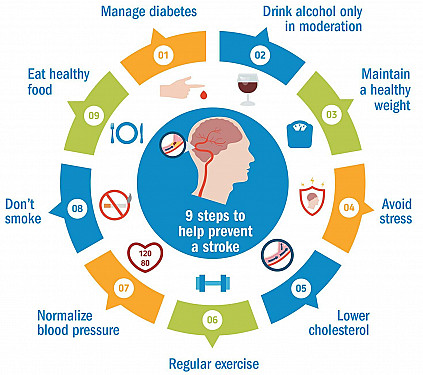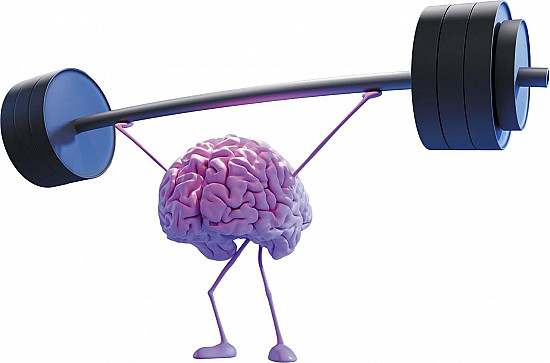Transient ischemic attack (TIA)
- Reviewed by Robert H. Shmerling, MD, Senior Faculty Editor, Harvard Health Publishing; Editorial Advisory Board Member, Harvard Health Publishing
What is a TIA?
A transient ischemic attack (TIA) is an episode of strokelike symptoms that completely resolve. The classic definition requires that symptoms last less than 24 hours, but most last less than one hour and often only a few minutes. A TIA is sometimes called a ministroke.
During a TIA, circulation to a part of the brain is interrupted briefly and then restored. This interruption can be caused by:
- a narrowing of an artery in the brain or in the carotid artery due to atherosclerosis
- a small floating blood clot. This clot enters the bloodstream from somewhere else in the body, often the heart. It temporarily blocks a brain artery.
|
|
Symptoms of TIA
Symptoms of a TIA are the same as those of stroke, except that they usually last for less than an hour. Most TIAs actually last only five to 20 minutes.
Symptoms of a TIA can include:
- dizziness or confusion
- weakness or paralysis on one side of the body
- sudden, severe numbness in any part of the body
- visual disturbance, including sudden loss of vision
- difficulty walking, including staggering or veering
- coordination problems in the arms and hands
- slurred speech or inability to speak.
Diagnosing TIA
Your doctor will ask about:
- your current symptoms
- your medical history, including conditions that increase your risk of stroke, such as
- high blood pressure
- diabetes
- high cholesterol
- smoking
- certain types of heart disease (especially atrial fibrillation).
Your doctor will examine you with special attention to the circulation in your neck. This is where major arteries supplying the brain are located. While examining your neck, the doctor will listen with a stethoscope for turbulent sounds that may indicate that blood is flowing through narrowed arteries.
Your doctor will recommend blood tests and an electrocardiogram (EKG). An EKG measures the electrical activity of your heart.
Your doctor may order a computed tomography (CT) or magnetic resonance imaging (MRI) scan of your brain. These will help to pinpoint the cause of a TIA and may demonstrate prior strokes.
To evaluate flow through blood vessels, your doctor may recommend other tests such as Doppler ultrasound, magnetic resonance angiography (MRA), or x-ray angiography.
If your doctor suspects that floating blood clots are coming from your heart, special heart tests may be necessary.
Expected duration of TIA
The onset of any symptoms suggestive of a stroke or TIA requires immediate medical attention.
You can expect a TIA to last less than 24 hours but usually an hour or less. If symptoms are not improving quickly within an hour from onset, a stroke is likely to occur without emergent therapy.
Preventing TIA
You can help to prevent TIAs by:
- not smoking
- keeping blood pressure within the normal range
- you may need medications to bring down your blood pressure
- lowering your LDL cholesterol level
- for high LDL cholesterol that doesn't respond to diet, statin drugs offer the most protection against TIA and stroke
- taking a low dose of aspirin (and or perhaps blood thinners) if your doctor determines the benefits outweigh the risks for you
- exercising regularly
- eating a healthy diet that is
- rich in fruits and vegetables
- low in saturated fats and cholesterol.
Treating TIA
When treating TIAs, the ultimate goal is to prevent a full-fledged stroke. Most TIAs are treated with antiplatelet (blood thinning) medications such as aspirin, dipyridamole (Aggrenox), clopidogrel (Plavix), or ticagrelor (Brilinta).
If you have significant narrowing of part of the carotid artery in the neck, surgery may be offered to correct the problem. This will help prevent future TIAs and stroke. The procedure is called carotid endarterectomy or carotid artery stenting.
Some TIAs are related to small free floating blood clots in the heart. These clots can occur in people with atrial fibrillation or advanced heart failure. In this situation, your doctor may recommend warfarin or a direct oral anticoagulant (anti-clotting) drug such as apixaban (Eliquis) or rivaroxaban (Xarelto).
In addition, your doctor may recommend medications to improve heart function or its rhythm.
When to call a professional
Call your doctor immediately whenever anyone has symptoms of stroke. Call even if these symptoms last only a few minutes. TIAs can be a warning sign that a stroke is about to happen. They require prompt attention.
Prognosis
Without treatment, having a history of one or more TIAs significantly increases your risk of stroke compared with someone who has never had a TIA.
Additional info
National Stroke Association
https://www.stroke.org/
National Institute of Neurological Disorders and Stroke
https://www.ninds.nih.gov/
About the Reviewer

Robert H. Shmerling, MD, Senior Faculty Editor, Harvard Health Publishing; Editorial Advisory Board Member, Harvard Health Publishing
Disclaimer:
As a service to our readers, Harvard Health Publishing provides access to our library of archived content. Please note the date of last review or update on all articles.
No content on this site, regardless of date, should ever be used as a substitute for direct medical advice from your doctor or other qualified clinician.
















